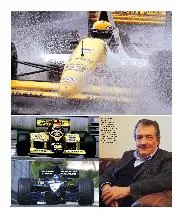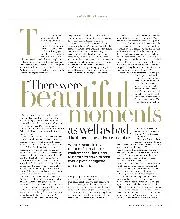Former Fondmetal boss Gabriele Rumi had gradually increased his interest through the late ’90s to the point of becoming Minardi owner and chairman, but terminal ill-health left him looking to sell.
The Italian team needed a saviour, and they found one in the beatific vision of Aussie aviation entrepreneur Paul Stoddart.
With six weeks to go before the start of the season, he agreed to buy Minardi.
Stoddart handed the team $4m before he’d even signed a contract, and once he stepped into the Faenza factory, could see why they needed the money so badly.
With only 40 staff left at the site in Italy, the team had nowhere near the manpower needed to build an F1 car – which currently existed as the aforementioned wooden mock-up.
Luckily, Stoddart had his crack F3000 team and a fleet of airliners to fall back on.
“It was a pretty challenging time. We had a [racing] facility in the UK with about 40 people there. There was probably only about the same amount left in the Minardi factory when I walked in the door.
“So we grabbed one of our planes and put all our F3000 staff on it.
“We told them they were going [to Faenza] for three weeks – they ended up there for six.”
The clock was ticking as staff worked furiously to turn the wooden model — a neat design from the mercurial yet highly-rated Gustav Brunner — into a fully-fledged F1 car.

The Minardi PS01 is launched against all odds – Marques, Alonso and Stoddart (left to right)
ERIC VARGIOLU / DPPI
“We got as many rooms as we could into a little hotel called The Capitolina,” says Stoddart. “People were hot-bedding, doing 12-hour shifts to keep Minardi running 24 hours a day.
“At the end of your shift, you’d go back to the hotel and kick the other person out of your bed, and send them back to work. I was working close to 24 hours a day. It was not for the faint-hearted.”
There was also the problem of making the car go once it was built. For 2000, the team had used outdated Cosworth ‘JD’ engines, but with the withdrawal of Rumi’s money that had come to an end.
Stoddart went to Cosworth and its top man to see if he could get a better deal.
“I’ll always remember – I walked into Bernard Ferguson’s office, and he said ‘What the f*** do you want from me?’ – in true Bernard fashion!” remembers Stoddart.
“I have to say, Cosworth were ultimately fantastic. We did a good deal, good for them and even better for us.
“If it wasn’t for Bernard’s support, and indeed, everybody there throughout the years, Minardi wouldn’t have made it – they were true partners.”
The pair agreed a deal which saw the team supplied with updated ‘VJ’ Zetec-R V10s.
With the power unit sorted, Brunner redesigned the PS01’s rear-end for the fourth(!) time that off-season (due to engine uncertainty), but there was still much to be done.






